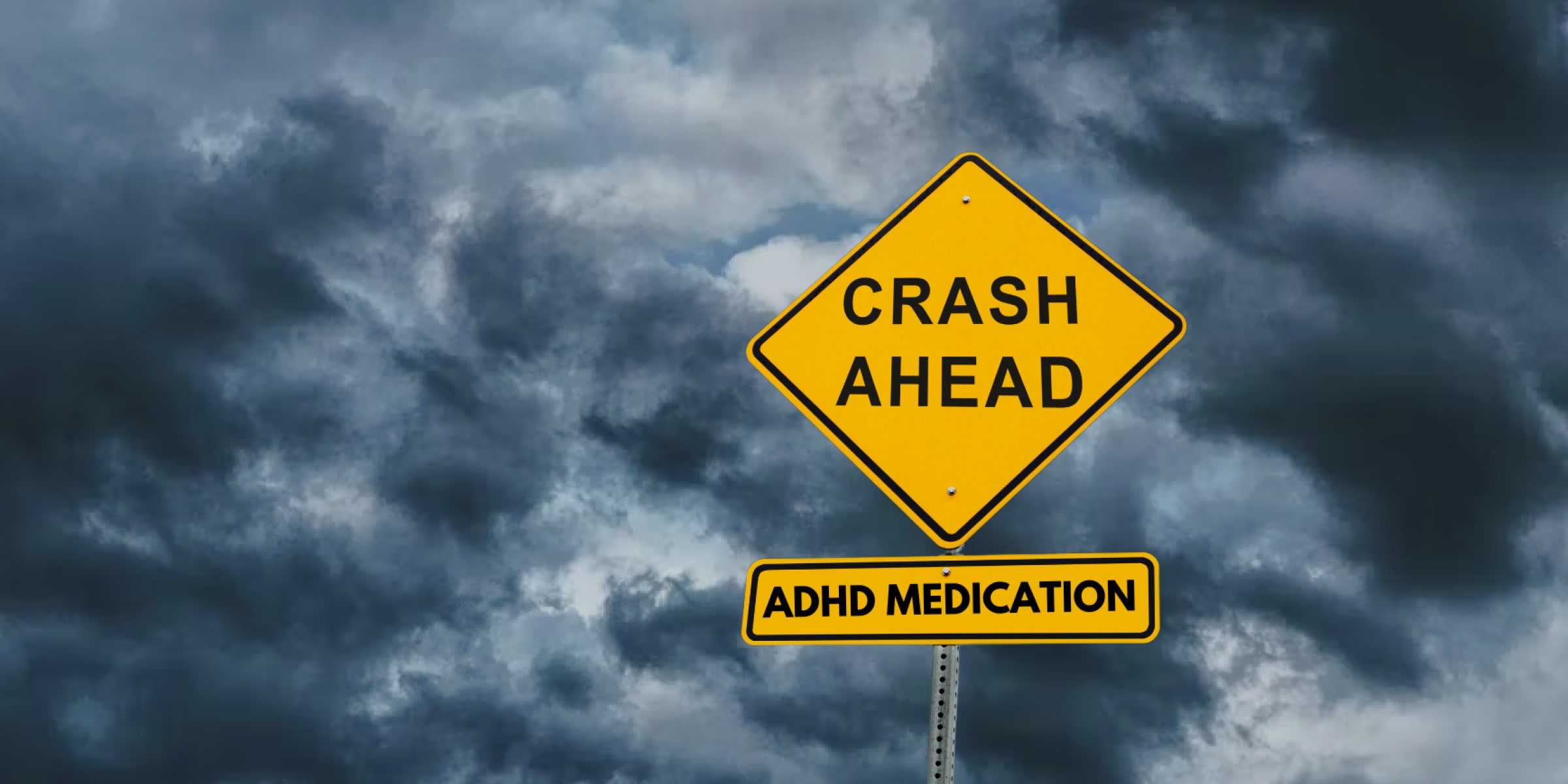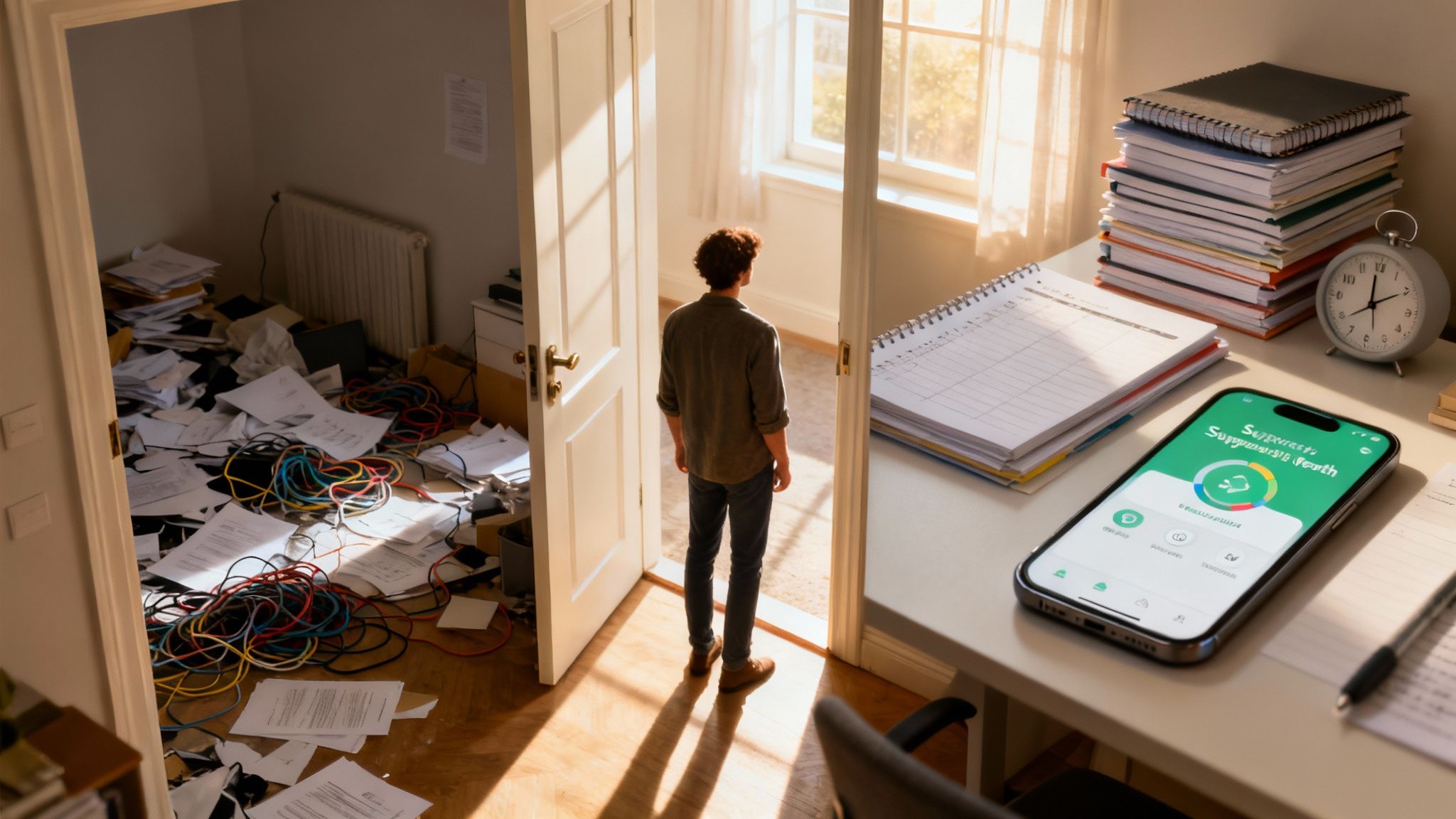The feeling of being at school, work, or a social function and experiencing a medication crash is an experience many ADHDers know all too well. The sudden rebound can cause us to feel tired, irritable, or even restless. Not to mention, the headaches.
Preventing medication rebound is possible, but it requires the last thing anyone with ADHD wants to hear: you have to get your timing right.
In case you wanted something new to hyperfocus on, here’s your guide for fine-tuning your ADHD medication regimen and preventing that dreaded afternoon stimulant crash.
Looking for something else?
Too long; didn’t read
Medication rebound from a stimulant can feel draining and sometimes really emotional. Simple lifestyle changes like staying hydrated or tweaking parts of your medication may help reduce the frustrating “come down” feelings. It may take a little while to figure out exactly what solution works for you, but improving your mental health will always be worth it in the long run.
What is medication rebound?
Extended-release (XR or ER) ADHD medications are designed to steadily release the drug over a given amount of time—usually ten to twelve hours. This is in contrast to Immediate-release versions (IR), which release the entirety of the medication after ingesting it, and typically last 4-8 hours at most.1
What causes a medication crash?
Medication rebound happens when stimulant medications leave the system ‘too quickly’. The rapid absorption and elimination of the medicine can result in the return of ADHD symptoms—sometimes even more intense than unmedicated symptoms.2
Medication rebound effects
The 'Adderall crash' (or any other stimulant crash) symptoms are similar to some of the well-known ADHD symptoms, but they occur suddenly after a day on stimulant medication. These symptoms may include:
- Difficulties paying attention
- Interrupting others or talking ‘too much’
- Feeling restless or suddenly bored and understimulated
- Leaving important tasks unfinished
A medication rebound can also affect us emotionally, and we may feel:
- Angry and irritable
- Sad and subdued
- Extreme exhaustion and brain fog
Social impacts of an afternoon Adderall crash
Setting aside how awful a rebound can make you feel, there are also social consequences from your medication suddenly causing regression of ADHD symptoms. A crash can feel very unpleasant, and sometimes even embarrassing if your behavior becomes irrational or inappropriate.
Friendships and personal relationships
Preventing a crash is important for relationships to run smoothly, as the heavily rely on the mutual capacity to listen and respond to each other without interrupting.
In the workplace
Bosses and supervisors count on their employees to follow through with their workplace responsibilities. A medication crash can cause sluggishness and a loss of motivation to want to continue work duties.
At school
Medication rebounds have the potential to make us appear uninterested or disengaged in classes. This can even lead to a decrease in performance, especially if the class is at the same time every day—right after your medication wears off.
.jpg)
How to avoid the afternoon Adderall crash
Many factors play into the absorption and release of ADHD medication, including:
- Diet
- Exercise
- Hydration
- Sleep
Here are some tips on minimizing medication rebound with simple lifestyle changes and awareness.
1. Whip your diet into shape
Protein: yes! Ascorbic acid: no!
Cleaning up your diet doesn’t mean you need to commit to Whole-30 or eat like a fitness influencer. Start your day with a high-protein breakfast and skip foods high in vitamin C to ensure your medication absorbs correctly.
Don’t worry too much about sticking to traditional breakfast foods, either. Burrito leftovers from two days ago or soup eaten directly out of the can will satisfy your protein requirements just as well as a fancy homemade breakfast.
Snacks
Stock up with reliable, grab-and-go snack options like protein shakes, yogurt, or even spoonfuls of peanut butter right out of the jar—an ADHD staple!
Stimulant medications are notorious for causing appetite suppression, making it hard to eat at regular times. You can counter this by eating small snacks throughout the day if you find it easier than having a full meal.
2. Get enough exercise
Adding a little more exercise into your life may be easier than you think. Try going for a walk around the block when you feel your motivation run thin. Even just dancing to a few songs while you clean the house will get your blood pumping and help elevate your mood.3
3. Hydrate or die-drate
Okay, maybe that was a bit dramatic... But! Being dehydrated can lead to fatigue, anxiety, depression, and sugar cravings.4 If you’re already making an effort to move more, you’ll also need to drink more water.
Hydration hacks
If you find it challenging to drink the recommended amount, try adding lemon, cucumber, or - more realistically - some sort of flavored water enhancer that comes in those cute little squeeze bottles!
4. Sleep
Getting good sleep is always important, as it affects many facets of our overall health.
Consistency
Improve your quality of sleep by going to bed around the same time every night. This will help your circadian rhythm stay on track.
Avoid stimulation and blue light before bed
Exposing yourself to stimulation sources before bed - such as watching ADHD TikToks - will stimulate your brain at the wrong time5 and probably lead to a later night because we wanted to watch “just one more video.” Not to mention, the blue light effect can also interfere with our sleep-wake cycle.
Instead, encourage relaxation
Instead of using an electronic device, try working on one of your calming hobbies before bed to wind down. If you’re feeling extra motivated, you could include a mindfulness activity - like meditation - to help you relax before it’s time to doze off.
5. Keep track of your highs and lows
To fine-tune your medication dosage and timing, track your regular kick-in and kick-out times after taking a dose, along with what you notice about your body and cognition throughout the day. We’ve included a table below to help you determine the times you can anticipate based on whichever medication you are taking.
![adhd medication timing for stimulants - a table. Times listed will be [kick in time, efficacy length] for each medication. Adderall IR: 30 minutes, 8-12 hours. Adderall XR: 30-60 minutes, 4 hours. Concerta (XR): 1 hour, 10-12 hours. Daytrana (patch): 2 hours, 3-9 hours (depending on how long patch is worn). Dexedrine (short acting): 30-60 minutes, 4-6 hours. Dexedrine Spansule (XR): 30-60 minutes, 8-10 hours. Focalin IR: 30 minutes, 4 hours. Focalin XR: 30 minutes, 8-12 hours. Jornay PM (taken at night; XR): 12 hours, 8-14 hours. Mydayis (XR): 2 hours, 10-16 hours. Quillicant (liquid; XR): 30-45 minutes, 12 hours. Ritalin IR: 20-30 minutes, 3-5 hours. Ritalin LA (XR): 20-30 minutes, 6-8 hours. Vyvanse (pro drug, takes longer to metabolize; XR): 1-2 hours, 10-12 hours.](https://cdn.prod.website-files.com/623a0044a408ef57d0c818a3/62e013490002f58fa6b6c357_ADHD%20stimulant%20medication%20timing%20(on%20average).jpg)
How to track your medication reactions
Step 1: Look at what time you take the medication and make a mental note of when you feel it is working. No need to keep an intense journal about everything that happens in your day; just take a minute to consider your daily highs and lows.
Step 2: Ask yourself these questions after taking medication and log your answers:
- When do I feel at my ‘best’, and what does my ‘best’ feel like?
- When do I feel most productive and motivated?
- What part of my day am I most likely to get distracted and why? How does medication affect that?
- What times of the day do I usually become more emotional or irritable, if ever?
- When do I start to feel fatigued or burnt out?
- Do I have any other side effects at the end of the day, like headaches?
If you find that your medication isn’t supporting you at important times of your day, it may be time to talk to your doctor.
Talk to your doctor about medication crashes
Luckily, problems with medications can be addressed and easily fixed with help from a physician or ADHD specialist. Be sure to bring your notes from above when you’re ready to have this discussion.
How your doctor can help
You doctor may suggest including a short-acting dose in the afternoon. This may allow you to experience a smoother comedown from the stimulant effects.
Here are some medication changes your doctor may suggest:
- Modifying your dose
- Adjusting the timing you take your medication
- Switching to a different stimulant, such as Vyvanse - a stimulant known to have smoother comedown effects
- Adding a short-acting ‘booster dose’
- Adding an antidepressant







